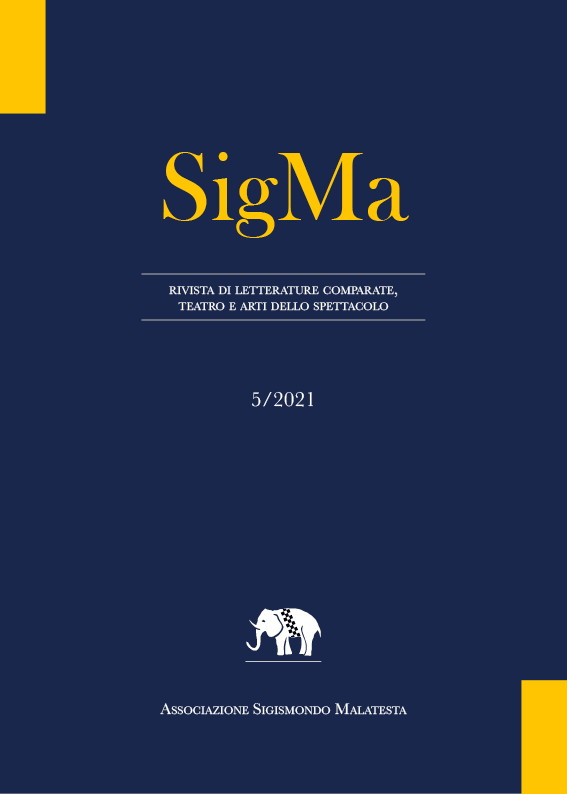“In the second person plural”: Climate Change, novel and poetry in Ben Lerner’s “10:04”
Abstract
According to the thesis proposed by Amitav Ghosh in his successful book The Great Derangement, climate change, by its very nature, exceeds the territory of the modern novel by focusing on what fiction, from the nineteenth century onwards, has confined to a faded background: the unthinkable. The rise of the novel marks indeed the victory of the probable and the plausible and the defeat of the extraordinary, which is relegated to less noble compartments of literature. Therefore novels carry out an actual ‘rationalization’ of the world. According to Ghosh this explains why ‘serious’ fiction doesn't tackle, if not marginally, the question of climate change, which seems to be pivotal only in genre literature. More than being characterized by the “trauma of the absence of trauma” (Giglioli) our age seems to be neither capable of processing all the traumatic events that occur nor capable of experiencing them through literature. Ultimately this is The Great Blindness that Gosh talks about: a crisis of the imagination because of which art and literature become tools that have the sole utility of obfuscating the reality that surrounds the contemporary man.
On the basis of such a prospective, my intent is to see how two extraordinary events such as hurricane Irene and, mainly, hurricane Sandy are described in one of the most significant novels of the last decade: 10:04 by Ben Lerner. In the first case the author senses the world becoming averse as the hurricane approaches, and describes the ways through which the pressure of the great Other, the nonhuman, coming from afar, modifies his perceptions and how it changes the collective capacity of managing space and time. In the second scenario the force of Hurricane Sandy seems to have an impact on the very structure of 10:04, making the narration collapse into a sort of long poem.
Therefore the central thesis of my article is that resorting to poetry is extremely functional to compensate the limits of the novel form: not only has poetry, even in modern times, always remained open to the wonderful and the impossible (if the probable is the field of action of the novel, the state of exception is very often poetry's field of action), it is also the field in which the referential and mimetic effect of literature is suspended.
Downloads
SigMa Journal is an open access, online publication, with licence:
|
|
CCPL Creative Commons Attribution |
The author retains the copyright of his work whilst granting anyone the possibility “to reproduce, distribute, publicly communicate, publicly exhibit, display, perform and recite the work”, provided that the author and the title of the journal are cited correctly. When submitting the text for publication the author is furthermore required to declare that the contents and the structure of the work are original and that it does not by any means compromise the rights of third parties nor the obligations connected to the safeguard of the moral and economic rights of other authors or other right holders, both for texts, images, photographs, tables, as well as for other parts which compose the contribution. The author furthermore declares that he/she is conscious of the sanctions prescribed by the penal code and by the Italian Criminal and Special Laws for false documents and the use false documents, and that therefore Reti Medievali is not liable to responsibilities of any nature, civil, administrative or penal, and that the author agrees to indemnify and hold Reti Medievali harmless from all requests and claims by third parties.

